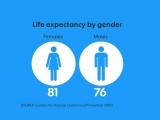THE CHECK IS IN THE MAIL: WHAT TO DO WHEN CUSTOMERS DON’T PAY

Introduction
One of the most frustrating problems business owners deal with is customers who don’t pay. This issue can be a source of enormous stress, aggravation and financial hardship. Customers who don’t pay their bills are, in effect, using (and abusing) a business as if it were a bank that provides free financing.
According to the Federal Reserve as of May 2015 total consumer debt in the U.S. was an astounding $3.4 trillion. (This excludes real estate mortgage debt.) The ACA (the Association of Credit and Collection Professionals) reported that in 2013 private collection agencies recovered approximately $55.2 billion in delinquent debt. Debt collection is subject to the federal Fair Debt Collection Practices Act.
How can businesses cope with this enormous problem? What must be done to get paid for fair and honest work?
Communicate
The first tactic business owners should use to deal with delinquent debt is to communicate with customers. Mere miscommunication can be a primary reason why a bill hasn’t been paid. For example, the U.S. first class mail mis-delivery rate has almost doubled in the past five years. This means that the check could indeed be in the mail: lost, mis-delivered, or stuck inside a Post Office mail-sorting machine.
Professional and courteous communication will go a long ways towards helping business owners collect on unpaid accounts receivable.
Negotiate
If communication fails, then it’s time to negotiate. Unpaid bills are an administrative and financial burden on businesses. The best approach is to put the issue behind you, even if this means collecting less than the full balance.
Customer circumstances and personal living conditions may have changed for the worse after a purchase, making it more difficult for them to pay. Offer discounts or installment payment plans to liquidate delinquent debt and allow your business to move forward. Patience is a virtue.
Escalate
If honest, good faith negotiation fails then it’s time to escalate. The law provides several remedies when customers deliberately refuse to pay their bills. Bankruptcy, however, will usually prevent businesses from collecting anything, or may result in substantially reduced collections (as in a Chapter 13 bankruptcy.)
Small Claims Court
Maine allows creditors to file a small claims action if the amount owed is $6,000 or less. If you prevail in court and obtain a judgment against a debtor additional legal action may be needed to collect on it. Every Maine District Court has forms and instructions for a small claims proceeding. This information is available for free online at:
http://courts.maine.gov/maine_courts/small_claims/MRSmClaims6-07.pdf
Mechanics Liens
Maine has strict rules on who may file a mechanics lien against a debtor. Generally any contractor, material or equipment supplier, architect, engineer, house mover or a business that provides repair services may be able to file a mechanics lien for an unpaid debt. Subsequent legal action may be needed to collect. However, one of the benefits of a lien is that it attaches to specific property of the debtor and can be collected if the debtor tries to the sell the property (e.g., a real estate or vehicle sale.)
A concise summary of Maine’s rules for mechanics liens can be found here:
https://www.nationallienlaw.com/wp-content/uploads/2012/09/ME-Law- Summary-2012.pdf
Use a Collection Agency
Many business owners don’t want to deal with the hassle of trying to collect delinquent debt. Collection agencies can help, but are expensive and typically charge a commission of 20 – 40% of any amount recovered. Make sure any agency you hire is licensed in Maine.
Theft of Services is a Crime
On December 6, 1865 the U.S. abolished both slavery and involuntary servitude (the 13th Amendment to the Constitution.) All states have laws that make it a crime to refuse payment for services rendered. Title 17-A of Maine’s Criminal Code defines theft of services and provides for a variety of penalties based on the dollar amount of the unpaid debt. See:
http://www.mainelegislature.org/legis/statutes/17-A/title17-Asec357.html
A criminal complaint alleging theft of services may be filed at your local county sheriff’s office.
Educate
If escalation doesn’t work then it’s time to educate yourself as a business owner. Failure is a learning opportunity. Business bad debts are a fact of life and represent another cost of business. They are unavoidable and will never be zero in the long run for most industries.
The best tactic is prevention. Change how and when you collect from a customer to minimize or eliminate the risk of non-payment. If your bad debt expense exceeds 0.5% of gross profit (not gross sales!) it’s time for you to rethink how you collect from customers.
This may include charging retainers, obtaining credit card pre-authorizations for future charges, and having a legally binding contract with a customer that contains an arbitration clause. Arbitration means that in the event of non-payment disputes would be resolved outside the costly and time-consuming court system.
Sooner or later most businesses will have a bad debt they will never collect. If your business uses the accrual method of accounting you will be able to claim a bad debt deduction for income tax purposes. For further details see the chapter on business bad debts in IRS Publication 535.
Don’t Detonate
Don’t go nuclear over an uncollected debt. It’s not worth the stress, and fallout. There is more than enough brisance in the legal remedies discussed above. (If you don’t know what brisance means I strongly recommend you look up this important word and add it to your arsenal of verbal ammunition. The effort of looking it up will help you remember.)
Bad debts are just another cost of business like inventory shrinkage, casualty losses, theft by employees, etc. All of these costs must be absorbed and budgeted for. Every business is a complex system of inter-related equations that must be balanced to achieve success. Mathematics will never lie to you, never cheat you, and never betray you. You can count on it.
“The man who never has enough money to pay his debts has too much of something else.”
James Lendall Basford
“In God we trust; all others pay cash.”
American Proverb
Photo Acknowledgements and Credits: Business Man Walking © Julenochek | Dreamstime.com / Young Man Shrugging His Hands © Piotr Marcinski | Dreamstime.com / Composition & Modifications by Shawn Hill | VASTmicro
George Adams
Certified Public Accountant Master of Business Administration
Tel: (207) 989-2700 E-Mail: GeorgeAdams@IntelligenceForRent.com
450 South Main Street: The HQ of IQ
Brewer, Maine 04412-2339
©2015 Copyright George Adams CPA MBA. All Rights Reserved.





































































